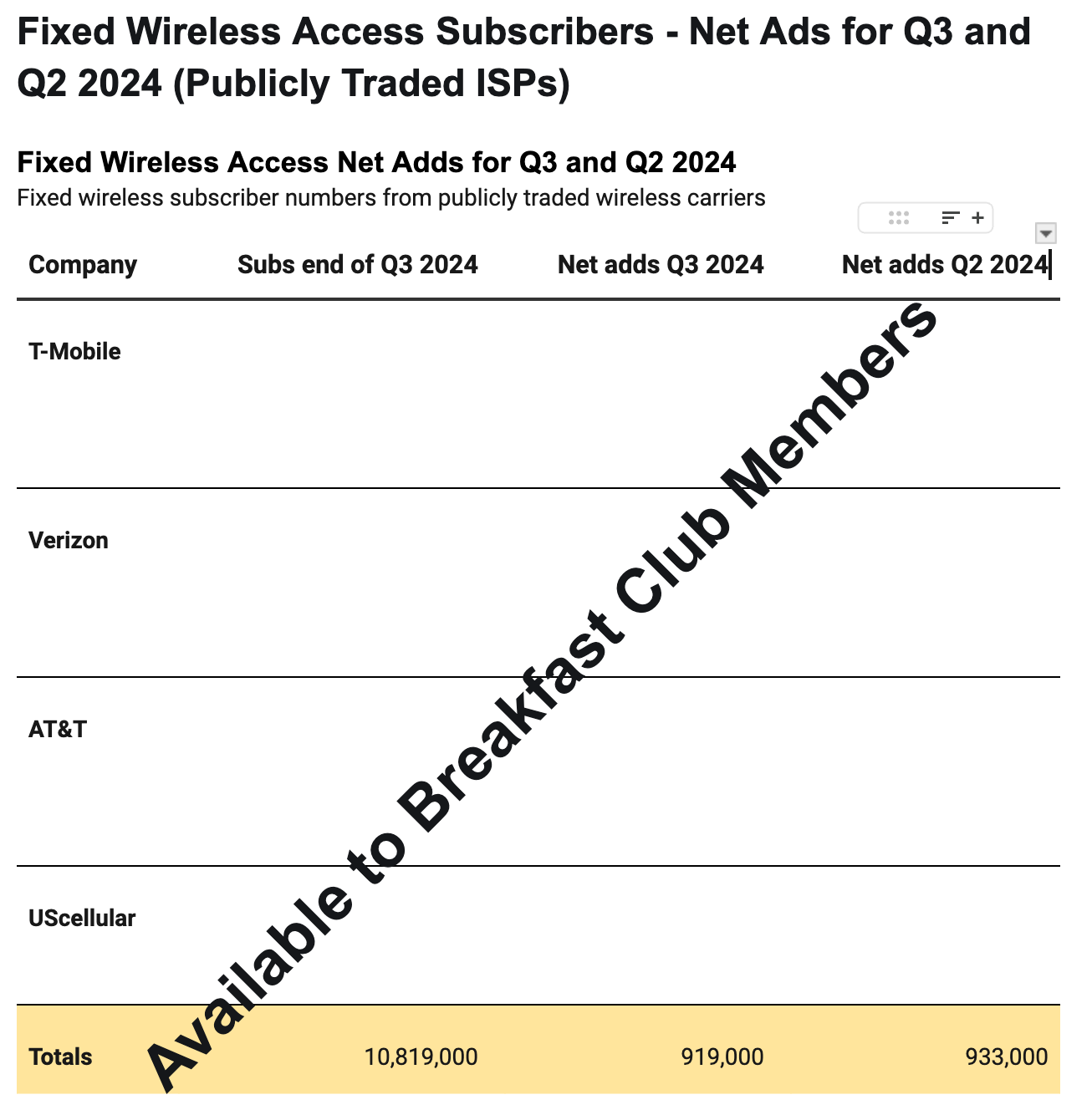Verizon to Buy $1 Billion of UScellular Spectrum
The price is higher than analysts expected, New Street said.
Jake Neenan

WASHINGTON, Oct. 21, 2024 – The UScellular breakup continues: the company announced Friday it would sell spectrum licenses to Verizon for $1 billion.

The deal involves the UScellular’s 850 MegaHertz (Mhz) licenses, as well as some licenses in the PCS and AWS bands. T-Mobile is moving to acquire the company’s 4 million customers and a chunk of spectrum for $4.4 billion.
“We are pleased that significant value for a portion of the remaining licenses will be realized,” UScellular CEO Laurent Therivel said in a statement. “We are continuing the process to opportunistically monetize the remaining spectrum assets not included in today's announcement.”
The deals are in part ways for Verizon and the two unnamed carriers to acquire more valuable airwaves in the absence of a spectrum pipeline from the government. The Federal Communications Commission’s ability to auction off spectrum bands expired in March 2023, and efforts to reinstate it have stalled on Capitol Hill.
USCellular is also selling licenses in the 700 MHz band, C-band, and the Citizens Broadband Radio Service (CBRS) to “two additional mobile network carriers,” the company said in a release. The company has not named the two carriers.
The sales are contingent on the T-Mobile deal getting the regulatory greenlight, and will need approval themselves. The companies have said they expect that deal to close in mid-2025. Should all the deals get the necessary regulatory approval, the company will hang on to other 700 MHz, 3.45 GHz, CBRS, and C-band spectrum, as well as some millimeter wave.
Analysts at New Street Research wrote in a note to investors that $1 billion was higher than they would have expected for what Verizon’s getting by about 23 percent. They still expect UScellular to offload its remaining assets after the T-Mobile deal.
“This spectrum transaction took longer than we expected, and it is for fewer of the licenses than we expected,” New Street’s Jonathan Chaplin wrote in an investor note. “The monetization of the remaining spectrum could take time, but it will all be sold eventually, as will the towers and partnerships.”
Chaplin wrote that the premium price tag could be good news for EchoStar, which could see its own spectrum holdings go up in value. The company, which owns Dish and its vast spectrum holdings, has been dealing with financial troubles and is struggling to become a real competitor to the three major wireless carriers.
“This is good for spectrum values and for owners of spectrum generally,” he wrote.











Member discussion